Weekly Objectives & Achievements
Week 7:
Objectives:
- Articulate the ways in which individual, institutional, and structural racism impacts community food security
- Analyze, present, and discuss our project findings in preparation for disseminating our work
- Create and review Academic and Experiential Learning Review (AER) outline
- Travel to Galiano Island and gather more information about Galiano Island itself and the Galiano Club
Achievements:
- Completed AER outline and submitted via Canvas
- Received feedback from Proposal through professor and TA
- Low grade
- Visited Galiano Island (Oct 14-15)!
- Had meetings with Jane, Alison and Nancy and talked about how the Food Program works.
- Helped clean up at the Stock Market.
- Helped at the school garden by preparing the garden beds with compost.
- Explored Galiano Island and learned more about the history of the island
Week 8:
Objectives:
- Recognize, manage and control scope change in our project.
- Discuss how to improve on our second blog posting
- Transcribe voice recorded interview from Galiano Island
- Gather all notes taken by team members
Achievements:
- Revised second blog posting
- Input information from audio recordings and notes from each teammate onto a document for all team members to see
- Have exchanged emails with Jane with more clarification about statistics of the population in Galiano Island.
- Input the recipes into Dietary Wellness Plus program for Nutritional Assessment of each recipe
- Will pass the information tables to Alison, Food Program Manager
Week 9:
Objectives:
- Reflect on the challenges and opportunities for integrating food justice and indigenous food sovereignty perspectives when addressing issues of community food security.
- Explain the importance of experiencing and resolving issues of uncertainty as a key process in developing professional competencies.
- Articulate personal and group moments of significance in our CBEL project.
- Collaboratively design strategies for successfully completing your project based on the discussion of personal moments of significant change.
- Finish blog post #3
Achievements:
- Highlighted the importance of the addressing indigenous food sovereignty
- Reflected and identified some Significant Moments of Change throughout the project during tutorial
- Constructed a graph of emotion and knowledge
- Finished Blog Post #3
Moment of Significant Change
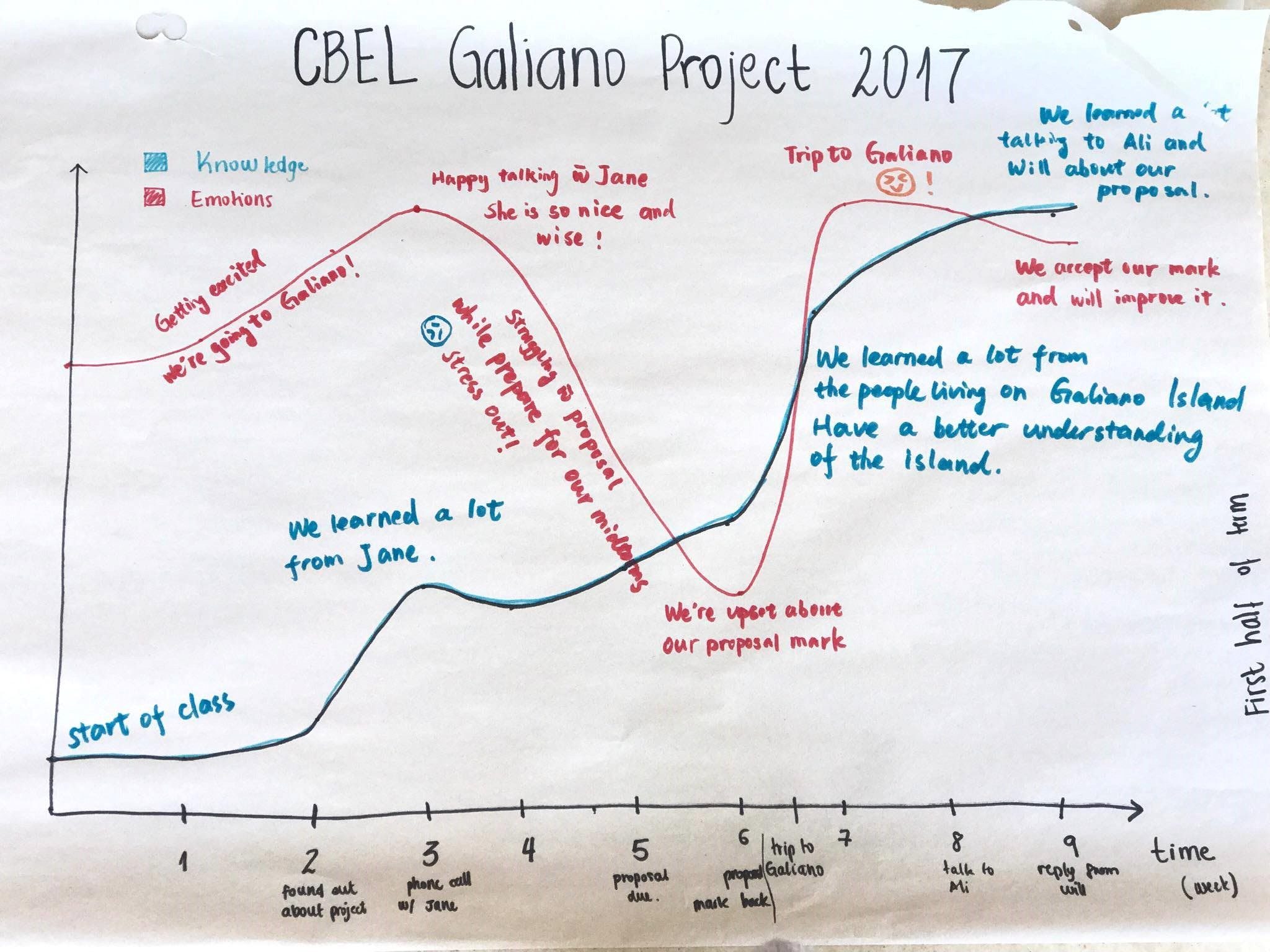
During our tutorial session we participated in a “Moment of Significant Change” workshop. This graph represents our emotions and confidence in knowledge about our project throughout the semester. As a group, we reminded each other of our journey through LFS 350 until now, which has been a rollercoaster of emotions, skills, knowledge and beliefs.
In the beginning of the course we were excited to meet our groups and find out our projects, but we had very little knowledge for what we had to do for the projects. We became even more excited after finding out we were going on a field trip to Galiano Island. However, the moment we’ll never forget is when we met our group. It’s rare to suddenly bond and have chemistry with your group in the first meeting but that’s exactly what happened for us. In terms of our teamwork we work incredibly well with each other. Response time on Facebook — which is our main way of communication — has always been within a few hours for all our members, we have always been encouraging to each other, and we all have high expectations for our group blog posts and assignments. Tim Harford said that being in a team that you were not previously friends with is more beneficial than being in a group with your friends, which we found to be true in our case (TED, 2016). This is because awkward strangers are more likely to help solve challenging problems and be more creative (TED, 2016).
A moment of difficulty for us was the uncertainty aspect in the beginning of the project. We weren’t sure about what Jane wanted us to do for the Galiano Club, or how to do it. Tim Harford believes that uncertainty requires more focus and attention, which can increase learning, creativity, and achievement (TED, 2016). We need to keep the bond and drive in our group alive even after setbacks, in order to achieve learning, creativity, and achievement. Every team member in our group is dedicated to keeping our motivation, so we know we will have a successful project in the end.
In terms of the Significant Moments of Change, our confidence knowledge had a general trend of increasing according to time, differently from our trend in emotions, which varied a lot. Our confidence in knowledge slowly progressed when we first had a phone conversation with Jane, and spiked up after we visited Galiano Island, which gave us a better sense of what was expected from us. At this point, we had learned about asset-based development and food justice, which we wanted to implement into our project. Despite our initial excitement, one of the major setbacks in our journey was writing our proposal during midterm season (which was stressful), and getting our proposal report back. Although we thought that our methods for the nutritional assessment correlated well with asset-based development, food justice and food insecurity, our feedback suggested otherwise: our connections to these topics were not convincing and too far-reaching. This was a disappointment and it took a meeting with both our TA and professor in week 6 and 9 respectively — which ended up becoming a Significant Moment of Change in our emotions graph — to realize our mistakes. We also had to accept that one of the major challenges of our project was having insufficient information (ex. literature research) to write a decent proposal. Therefore, our recommendation for future groups is to question what knowledge they think they know, question every claim they make and if they think they know enough to have a specific plan for their project, to question that as well. In the Freakonomics podcast, “Failure is Your Friend”, the idea of a pre-mortem is applied to projects to reduce over-confidence at the beginning of a project and increase participation by individuals that may have otherwise not spoken up in a group setting (Freakonomics, 2013). A pre-mortem involves thinking of everything that may go wrong in a project before it goes wrong (Freakonomics, 2013). We think the pre-mortem will be extremely helpful for future projects and recommend future groups to go through this process as well.
About half a week after receiving our proposal feedback, our emotions skyrocketed during our trip to Galiano Island, which we have to say, was a really magical and beautiful island. Part of what made this trip so special was the company that we were in. Our group really got along during this trip and it didn’t feel like an assignment at all. We met Jane (President of the Galiano Island Club), Alison (Food Program Coordinator), Nancy (Healthcare Society Better at Home Program Coordinator), Barry (Food Program Coordinator), and Janna (Food Program Coordinator). Everyone we met, including some farmers at the Stock Up Market were incredibly nice. Jane even gave us a private tour of the island and had so many stories to share. Our knowledge also grew exponentially about what we were expected to do for our project after talking to Alison and seeing an example of what she wanted (DRI for club members and menu nutritional analysis). We also learned a lot more about the food system at Galiano Island from farmers at the Stock Up Market, which some of us are using as our topic in our Thesis Report (ex. Organic farming vs GM food production). Scroll down to the end of the post to see some pictures we took during our trip!
Our emotions and knowledge have remained fairly constant after our trip to Galiano Island. After emailing our professor, Will Valley, in week 9 we were able to clarify what we needed to fix in our proposal for our final report.
About the future…
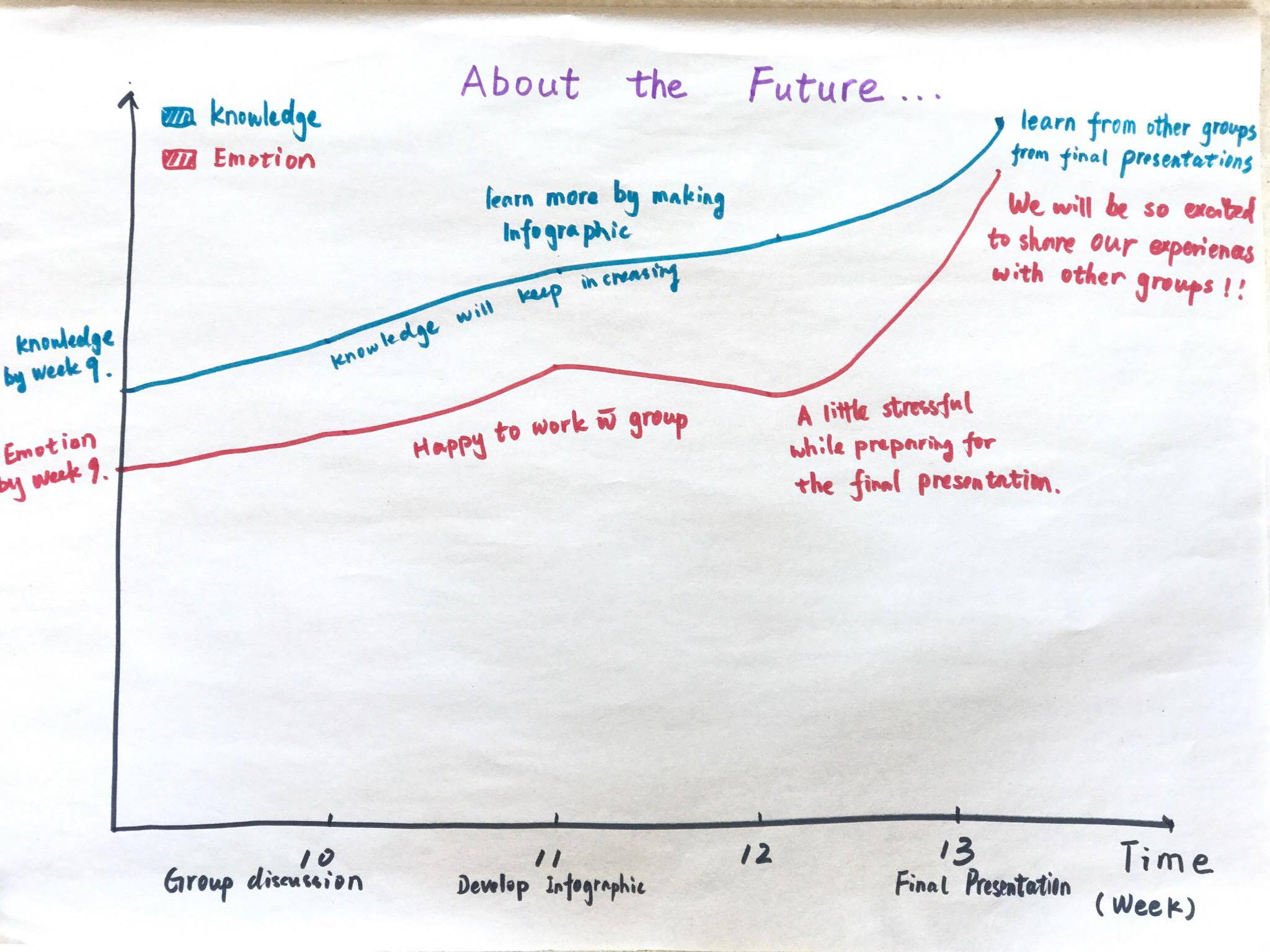
By the end of week 9, we had finished our proposal and received feedback from both our TA Alexis and Will. Since we only had one chance to visit Galiano Island, this limited our capacity of learning. Thus, in the following weeks we will shift more of our attention to looking at academic literature that will extend our knowledge. By this point, we will focus on how to modify our proposal according to suggestions from our TA and professor so that we can build up a strong structure towards our final report. We will also work on an info-graphic of our project which will make the structure of our presentation more clear and give our audience a better way to understand our work. The 6 of us have learned a lot not only from the project or lecture but also from each other, such as how to cooperate, take care of each other, and strengthen our team connection. This is all useful knowledge that will help us further in the course.
Now that we are at the end of this semester, we will keep improving our report and get ready for the final presentation.. We are so excited to show what we’ve learned and experienced from Galiano Island and we are also looking forward to see how the other groups worked.
The Graceful Dismount: Strategies for a Successful Project Completion
Our strategy for a successful project completion begins with us reassessing our project proposal. When we wrote our proposal, there were many uncertainties about the nutritional analysis and about what we were required to do for the project, which led to us having misunderstandings of the project, mistaking the goal and achievements. Since visiting Galiano Island and speaking with Alison in person, we now know what has to be done. Now that we have a clearer understanding of our goals and achievements, we feel as if we are now able to complete the tasks that were intended for us. The tasks include properly completing the nutritional assessment and DRI for menu items and making sure it is sent to Jane and Alison. We will be communicating with them continuously to ensure that we have received sufficient information we need for the project and provided them with all the information they require.
In addition, we will be keeping the rest of our deadlines in mind for the remainder of the term. This ensures a head start on our assignment and will give us enough time to complete, review, and revise our assignments. As well as asking others for opinions on the assignments that we have completed. As for our final presentation, we are hoping to complete it earlier than the due date in order for us to send it to Jane and have her review our presentation to assure our information is as accurate as possible and to ensure that we can deliver these information fluently to our audience. We will then be inviting Jane over to UBC to view our final presentation on Wednesday, November 29th and to provide further feedback on what we did well, what information we are missing and what we can improve on next time.
Before the end of the term, we will be checking in with each of our group members for evaluation and assessment. We will discuss each of our strengths and what each of us can improve on. Like we mentioned earlier, we find that our group works well together and we all get along well. This can be a strength for our group as we are comfortable with each other, but we understand that there are weaknesses that limited our progression as well, the major one failing to properly discuss the project as a group and being too confident in our project. As a result, we failed to realise that what we thought we were required to do was not what Jane and Alison was asking for. This was a major setback as we had to take a few steps back and reevaluate our next steps and how we can move forward from there on. Discussing our strengths and weaknesses will enable us to reflect on our experience this term and reconnect through reminiscing the highs and lows of our moments of significant change. In addition, we will be able to know where to improve on once we discuss what our weaknesses are and what our team members think we each can improve on. Again, we will be questioning what we think we know and asking ourselves what can be done for us to gain even more knowledge and experience.
Pictures from Galiano Trip!
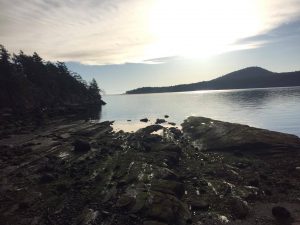
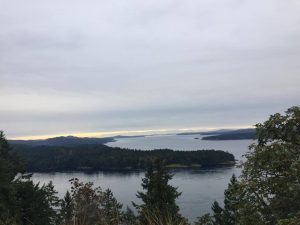
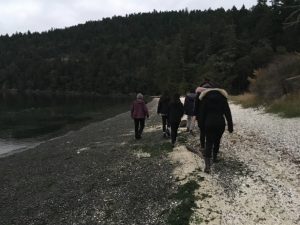
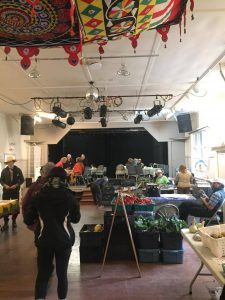
References:
TED. 2015. Tim Harford: How messy problems can inspire creativity. [Video file]. Retrieved
October 2, 2017, from https://www.youtube.com/watch?v=Jd_j_kw_jZQ
Cohn, G. (Producer). (2015, May 20). Failure Is Your Friend: A Freakonomics Radio
Rebroadcast. Freakonomics. Podcast retrieved from
http://freakonomics.com/podcast/failure-is-your-friend-a-freakonomics-radio-rebroad
ast/